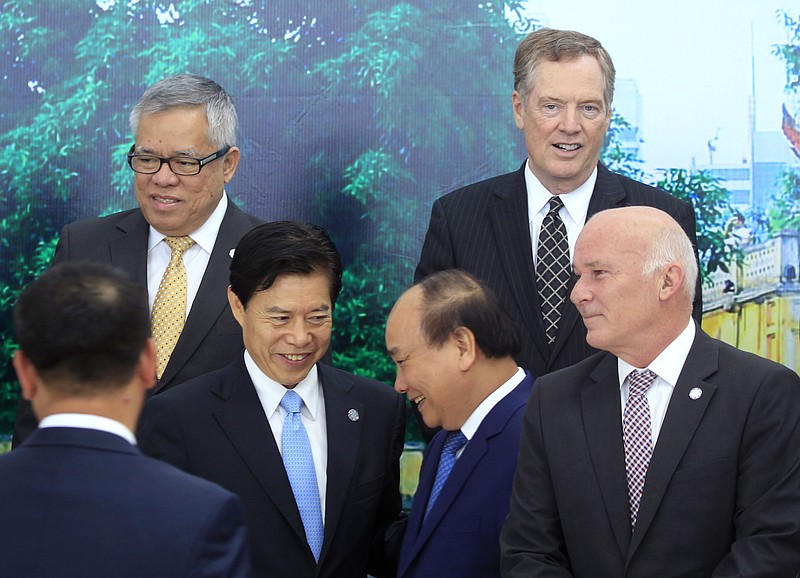HANOI, Vietnam (AP) - The Pacific Rim trade ministers started their two-day meeting in Hanoi Saturday focusing on free trade and regional economic integration amid fears of growing trade protectionism.
U.S Trade Representative Robert Lighthizer made his international debut at the gathering of 21 ministers from the Asia Pacific Economic Cooperation forum.
On the sidelines of the meeting, trade ministers from the remaining 11 countries involved in the Trans Pacific Partnership trade pact are scheduled to meet Sunday seeking to revive the agreement after the U.S. pulled out.
Alan Bollard, executive director of APEC Secretariat, said the ministers may either change some of the articles and put the pact into force or discuss it further.
"Either TPP ministers will say they want to go ahead with TPP 11 and change the articles so that they can put it into force. That's not too difficult," he said. "Or else, they might say they want to discuss it further. It could mean some more complicated renegotiation."
President Donald Trump withdrew the United States from the TPP soon after taking office in January, one of a few fulfilments of promises during his presidential campaigns as he championed "America First" trade policy and preferred bilateral free trade deals.
Vietnam and Malaysia had been expected to be beneficiaries from the original TPP with greater access to U.S. markets and investments.
In the meantime, ministers from the 16-member Regional Comprehensive Economic Partnership led by China will also hold a meeting in Hanoi on Monday to further their discussion on the deal seen as an alternative to TPP. It is expected to be finalized by the end of this year.
Speaking at the opening of the APEC ministers' meeting, Vietnamese Prime Minister Nguyen Xuan Phuc said that APEC should step up economic and technical cooperation to enhance the effectiveness and distinguish APEC cooperation from that of the other organizations and forums.
The group also needs to expand cooperation with other regions, he added.
"However, cooperation plans and their fine goals might still fail to turn into reality when we lack trust, political determination and coordination to safeguard a peaceful environment, ensure security and safety for investment, and the flows of goods in the region," he said.
Vietnam will host the annual APEC summit this November when leaders including Trump, Russian President Vladimir Putin and Chinese President Xi Jinping are expected to attend.
